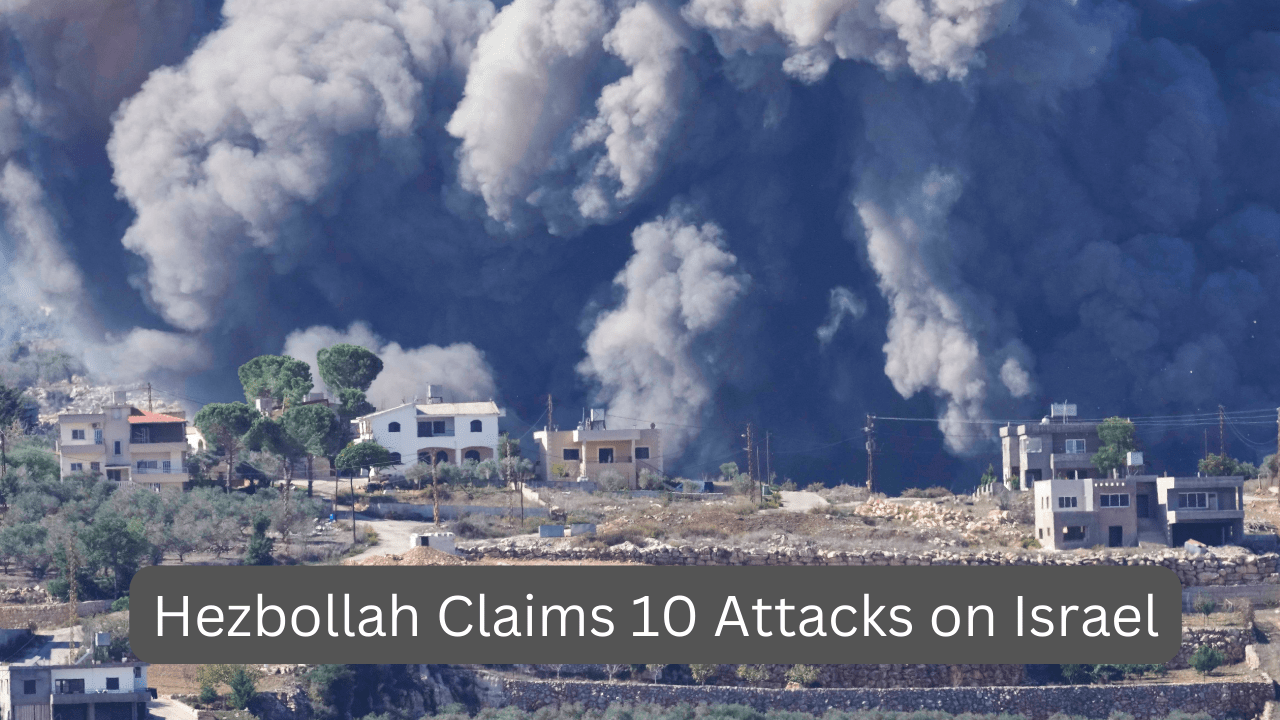
Hezbollah Claims 10 Attacks on Israel:
Unraveling the Recent Surge:
In the volatile landscape of the Middle East, the ongoing conflict between Hezbollah and Israel has taken a concerning turn. Hezbollah, the Shiite militant group based in Lebanon, has recently claimed responsibility for a staggering 10 attacks on Israel within a single day, with four occurring in the last hour alone. This article delves into the intricacies of these events, aiming to provide a comprehensive understanding of the situation and its broader implications.
Understanding Hezbollah: Ideology and History
Before delving into the recent surge in attacks, it’s crucial to understand the background and ideology of Hezbollah. Established in the early 1980s, the group emerged as a powerful player in the region, fueled by its Shiite Islamic principles and anti-Israel stance. Having engaged in previous conflicts with Israel, Hezbollah’s actions are deeply rooted in a historical context that shapes its present-day activities.
The Recent Surge in Attacks: Unpacking the Numbers
The 10 claimed attacks on Israel, including the intensified four within the last hour, demand close scrutiny. This section provides a detailed overview of each incident, analyzing the frequency, intensity, and potential motives behind this sudden surge. By doing so, we aim to shed light on the evolving dynamics of the conflict and its immediate implications.
Israel’s Response: A Swift Retaliation
In response to Hezbollah’s onslaught, Israel has taken immediate actions to address the security threat. This part of the article explores the historical context of Israel’s responses to Hezbollah and how the nation is strategically maneuvering to counter the current wave of attacks.
International Reactions: A Global Perspective
The ripple effect of these attacks extends beyond the immediate conflict zone. Examining responses from neighboring countries and the global community provides insights into the broader implications and potential diplomatic consequences.
Security Implications: Assessing the Threat Level
As the conflict escalates, assessing the security implications becomes paramount. This section explores the potential impact on regional stability and the overall threat level posed by Hezbollah’s actions.
Media Coverage: Shaping Public Perception
Media plays a crucial role in shaping public perception of conflicts. Analyzing how the events are portrayed in the media provides valuable insights into the narrative being constructed and its potential influence on public opinion.
Diplomatic Efforts: Searching for Solutions
Amidst the escalating tensions, diplomatic initiatives are crucial for finding a resolution. This section explores any ongoing diplomatic efforts and potential avenues for de-escalation.
Future Projections: Navigating Uncertain Terrain
Looking ahead, this section presents various potential outcomes and scenarios resulting from the ongoing conflict, offering readers a glimpse into the uncertain future of the region.
Unraveling the Complex Tapestry
In conclusion, the recent surge in Hezbollah’s attacks on Israel raises significant concerns for regional stability. This article aimed to unravel the complex tapestry of events, providing a nuanced understanding of the conflict’s dynamics. As tensions persist, the need for diplomatic solutions and global cooperation becomes increasingly urgent.







